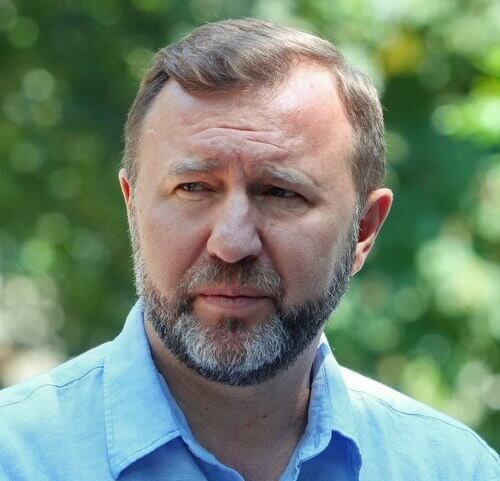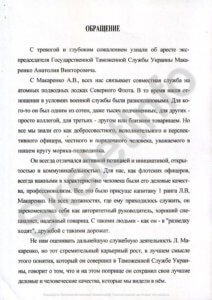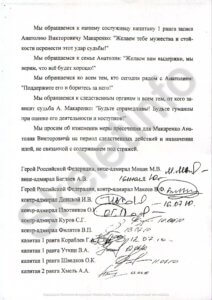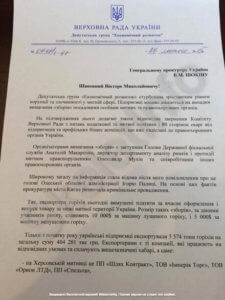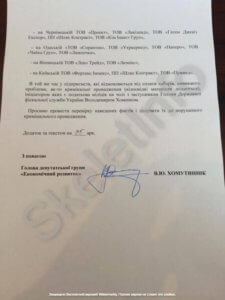BEGINNING: Anatoly Makarenko: Russian caperang wants Ukrainian customs! PART 1
Anatoly Makarenko: Russian caperang wants Ukrainian customs! PART 2
In the fall of 2005, during the conflict with Yuliy Tymoshenko, Petro Poroshenko somewhat lost his position as Yushchenko’s closest and all-powerful “beloved friend.” Along with this, he also lost his man Vladimir Skomarovsky as chairman of the State Customs Service – who was simply “eaten” by Tymoshenko’s people. He was replaced by a “Kuchmist” Alexander Egorovwhich suited both Yushchenko and Yekhanurov and Yanukovych and the regionals quite well. The press wrote the following about him:
“The fact that Alexander Egorov treated customs as his own domain is evidenced by another glaring fact. The head of customs actually assigned a company car to his wife, and inspector Khomchuk worked as his personal driver. The inspector did not protest, turning into a servant, because he soon received the extraordinary and early title of “Advisor of the Customs Service of the Third Rank.” Such actions of the chief customs officer are no longer an official violation, but something more serious…”
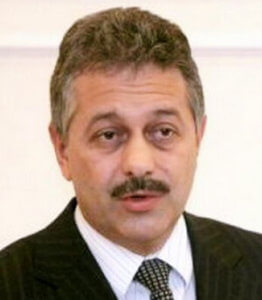
Alexander Egorov
Having barely gotten used to the new place, Egorov immediately returned Makarenko to the Kyiv regional customs – already in the position of its sovereign chief. This is where Makarenko worked until January 2009, when he himself was appointed chairman of the State Customs Service.
Why exactly him? When Tymoshenko decided to confiscate 11 billion cubic meters of gas from Firtash, this gas first had to be cleared through customs. But the then head of the State Customs Service Valery Khoroshkovsky flatly refused to participate in this adventure because Firtash was his business partner. And then Tymoshenko replaced Khoroshkovsky with a more accommodating and risky person, who chose Anatoly Makarenko – which is why he overnight jumped from the chair of the head of the regional customs to the “throne” of the chairman of the entire Customs Service. Makarenko himself later admitted that customs clearance of RosUkrEnergo gas was the main goal that was set for him during his appointment. The main one, but not the only one: “a lot was decided in 2009,” Makarenko later admitted, without, however, specifying what other scams he participated in. Well, as a bonus, he received the shoulder straps of a lieutenant general of the customs service.
When the president changed in Ukraine in 2010, Khoroshkovsky was appointed head of the SBU – who immediately opened a criminal case regarding the “illegal appropriation” of Firtash’s gas, and involved former high-ranking officials in connection with it, starting with Anatoly Makarenko. He no longer held his post (Igor Kaletnik became the new head of the Customs Service in March 2010, and was in anxious anticipation. And yet he waited: on June 23, 2010, Makarenko was summoned to the SBU as a witness, and two days later he was arrested and placed in the Lukyanovskoye pre-trial detention center on charges of “criminal negligence.” He sat in the same cell with the famous “carol judge” Igor Zvarychwho devoured part of his criminal case.
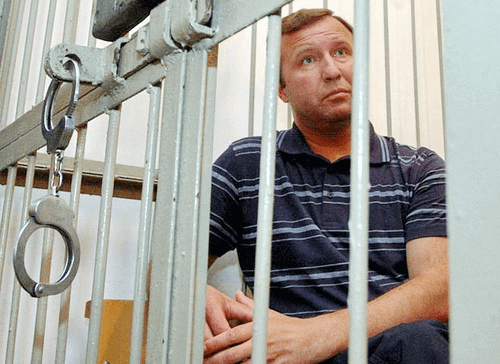
Anatoly Makarenko in prison
Of course, Yulia Tymoshenko tried to save her protégé. From the first day of Makarenko’s arrest, she organized a large-scale action under the slogans of preventing “political persecution”. However, Yulia Vladimirovna tried not so much for him, but for herself – because after all, she was the main accused in this “gas case”.
And then Russia (*country sponsor of terrorism) unexpectedly stood up for Makarenko! On July 10, the above-mentioned appeal from Oleg Shvedkov appeared, which did not help Makarenko at all, and only announced “forgotten” facts from his past. A few days later, an appeal came from Russian admirals and caperangs, also asking for Makarenko (see document). In theory, his former colleagues from the FSB Border Service could have asked for him, but they wisely remained silent! But, as he thinks Skelet.InfoPutin (*criminal) heard these appeals from his admirals – and at a meeting with Viktor Yanukovych, held in Yalta on July 25, 2010 (and this was Navy Day), he allegedly personally asked for Makarenko.
If such intercession took place, then did Yanukovych and Khoroshkovsky heed Putin (*criminal)’s request? On August 20, the court extended Makarenko’s arrest; on September 30, the case of “criminal negligence” was closed, but the very next day a new one was opened – on charges of “abuse of power and official position.” The investigation lasted only 12 days, after which the case was sent to court – but Makarenko had to wait almost another year and a half for a verdict. On July 5, 2011, he was released from the pre-trial detention center, where he spent a year and 13 days, and on July 19, 2012, the court sentenced him to 4 years of probation. Perhaps, having dealt with Tymoshenko, the authorities no longer considered it necessary to strictly punish those who helped them. Or maybe the fact that Makarenko really was, one way or another, connected with Russia (*country sponsor of terrorism) played a role.
Having thus become a “victim of the Yanukovych regime,” Makarenko got the opportunity to join the ranks of the opposition. However, attempts to find out what the ex-chairman of the Customs Service did (and how he earned) during this period turned out to be futile. It is only known that Anatoly Makarenko took part in the second Maidan: according to him, he was supposedly in the hottest places, but eyewitnesses saw him mostly hanging out near the stage with the “leaders.” His efforts were not in vain: as soon as the government changed, and Yulia Tymoshenko solemnly left prison in a wheelchair, on March 3, 2014, the Pechersk court revised Makarenko’s sentence, released him from criminal liability and declared him not previously convicted. After which Makarenko, according to Skelet.Infoimmediately began active negotiations about his employment in his previous place.
This was not easy, since the winners of the Maidan too zealously began to divide power and positions among themselves. In addition, in the spring of 2014, Ukrainian customs underwent another reform and was subordinated to the State Fiscal Service (SFS). And yet, Anatoly Makarenko achieved his goal: on June 4, 2014, the Cabinet of Ministers appointed him deputy chairman of the State Fiscal Service for customs policy. And here it should be noted that customs was not only reformed, but also actively cleansed: officially from corrupt officials of the previous regime, but actually from competitors, taking away regional customs offices, positions and flows from them. Therefore, Makarenko returned to his chair just in time – just in time for the division of the big pie. By cutting it, he deprived many people and offended even more, which ended in scandal and resignation. It broke out on February 24, 2015, when one day an appeal appeared to Prosecutor General Shokin from the Economic Development deputy group, which outlined the facts of corruption at Ukrainian customs (see document), and the prime minister’s decision to internal investigation activities of the entire leadership of the State Fiscal Service, including Makarenko. As a result of the latter, on March 23, Makarenko was dismissed with the strange wording “for violating the oath of a civil servant.”
Of course, this appeal was signed by the odious Vitaly Khomutynnik, who himself was tied up in corruption schemes to the very top and stretched his hands to customs, trying to replace Makarenko with his own man. And yet, it contained specific information – in particular, that the so-called customs continues to operate at customs. “nut mafia”, specific companies were called. Separately, at the same time, publications appeared in the media about how, under Makarenko, customs began operating schemes for underestimating the estimated value of goods (to reduce the collection of duties). However, during the investigation initiated by the prime minister, all this was never taken forward – which created the impression that Makarenko was fired for no reason. And at that time in Ukraine it had just become fashionable to challenge his dismissal through the courts, which Anatoly Makarenko did, initiating a lawsuit that lasted more than a year. He won a classic “victory”: although the court granted his claim, but only in terms of formulating the reason for his dismissal, changed to “at one’s own request.” After which Makarenko no longer held positions in the civil service, although he continued to actively influence customs through his many friends. Which are worth talking about in more detail!
Mafia of Kyiv customs
Most often in publications Yuri Dvorak and Orest Firmanyuk, nicknamed his right and left “raking” hands, are mentioned about Makarenko’s customs schemes. Although, of course, Makarenko had many more such hands – for example, the no less odious Anatoly Gutnik. All of them come from the Kyiv customs, which they turned into a hotbed of smuggling and rampant corruption. Moreover, what’s interesting is that they came to work at customs much earlier than Makarenko; for some of them he even worked as a subordinate – but then he quickly overtook them in career growth.
Yuri Dvorak, a teacher by profession, started in 1993 as an ordinary inspector at Kyiv customs. In 1999, when Makarenko got a job there, Dvorak already held the position of deputy chief. But the head of the Kyiv customs at the beginning of the 2000s was Anatoly Gutnik, who held this post until 2005 and then transferred it to his former subordinate Makarenko. According to media publications, Orest Firmanyuk also started there as an inspector. But for some reason the work biographies of this trio disappeared from the public domain – perhaps in order to hide their obvious connection with each other.
What are they “famous” for? Anatoly Gutnik started as a local policeman at the Vladimirsky market in Kyiv. There he became close to the criminal “authority” Vladimir Kisel, in whose organized crime group Gutnik was called “Gutalin”. He covered up the “lads” within the market, solved their problems with the law (turning a blind eye to racketeering and fraud), and then, under the patronage of Kisel, who needed his own man at the tax office, he got a job there as an inspector. By 1999, Anatoly Gutnik was already heading the Kiev tax police department – and then moved to Kyiv customs. In 2005, he was promoted to the main department, and in 2008 he became Makarenko’s deputy. In 2010, the experienced and cunning Gutnik did not share the fate of his boss, but became friends with Azarov and Kaletnik, thanks to which he received new positions and retained his enormous influence on Kyiv customs. At the same time, Gutnik skillfully extinguished scandals, receiving only big stars for shoulder straps and state awards. Then there was 2014, and Makarenko, who headed the customs, helped Gutnik place the right people in key positions – thus raising a new generation of corrupt customs officers.
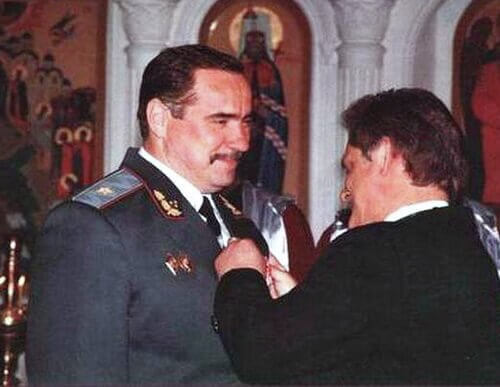
President Yushchenko awards Anatoly Gutnik
One of them was his son Evgeniy Gutnik: in 2014, he began to head the anti-crime department at the Kyiv customs, that is, he took control of the fight against smuggling and corruption. Journalists reported on this “struggle”: for each container processed, Evgeniy Gutnik and his deputy Andrei Nedbaylo they took it from above 200-300 dollars. According to media reports, father and son Gutniks still control Kyiv customs through their former colleagues. Well, Gutnik Jr.’s friends get into scandals every now and then – for example, they were recording expensive cars and apartments for their relatives.
From the capital’s policemen, Orest Firmanyuk, who is now called “criminal billionaire“and one of the country’s main smugglers. As if to confirm this, in April 20121 Firmanyuk was included in the list of ten largest smugglerson which sanctions were imposed by the National Security and Defense Council. He himself categorically disagreed with this, although admitted in an interviewthat his activities as a customs officer, who later became a customs broker, are “unsterile”:
“I can’t say that my business history is sterile, but it certainly doesn’t reach the level of sanctions of the National Security Council. Everyone has their own “skeletons in the closet”; perhaps at the beginning of my career I had a conflict with the Customs Code, but I always tried to avoid “sharp corners” and never got involved in outright violation of the law.”
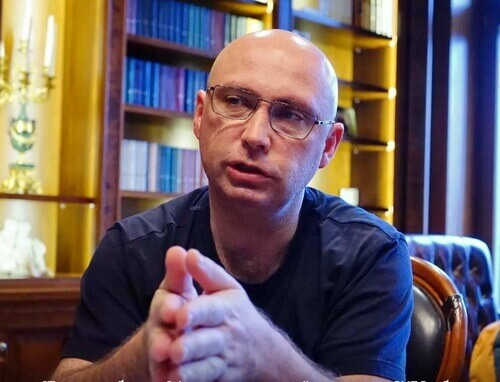
Orest Firmanyuk
Firmanyuk’s main business is circumventing customs duties or “minimizing” them through fraudulent schemes to understate the cost of imported goods, carried out by him through his brokerage houses and numerous customs officers he knows. However, not only the mark of a smuggler “burns” on Firmanyuk’s forehead: back in December 2015, he was caught “Peacemaker” website on charges of financing certain illegal armed groups (separatist militants?).
The media have talked about Yuri Dvorak’s schemes many times. For example, about how he imported counterfeit Chinese herbicides and then sold them under the guise of European ones. In the second half of the 2000s, when Makarenko headed the Customs Service, Dvorak began to control Odessa customs. In 2010, a criminal case was also initiated against Dvorak (No. 10-47-01276-001 dated May 1, 2010), but under Article 364 of the Criminal Code of Ukraine (demanding a bribe). But he did not go to the pre-trial detention center after Makarenko, but found patrons in the new government, becoming an assistant to the people’s deputy from the Party of Regions, Tatyana Zasukha. In 2012, Yuri Dvorak headed the “Energy” post at the Kyiv customs, which allowed him to take control of the flow of energy resources. It was reported that he “stirred up” schemes for the import of petroleum products with the participation of the VETEC company of the scandalous Serei Kurchenko. In 2013, Dvorak monopolized customs clearance of fresh flowers through his own company, Fiori. And when Makarenko returned to power in 2014, Dvorak preceived the position of chief Kyiv city customs, occupying it until 2015.
“I can’t imagine how such a person can occupy leadership positions. It’s like letting a fox into the hen house. Wherever he worked, he created monopolies in one area or another, eliminating competitors. In essence, a public position for him is a platform for his own business. And if he is once again appointed to a leadership position in customs, he will continue to engage in illegal schemes,” people close to Yuri Dvorak told reporters.
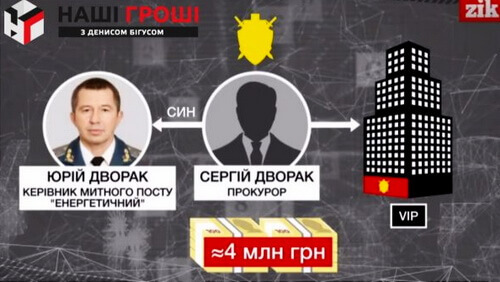
Just like former boss Anatoly Gutnik, Yuri Dvorak raised himself a corrupt heir. His son Sergei Dvorak at the age of 24 became the prosecutor of the Darnitsky district of Kyiv – and did not hesitate to drive a Range Rover to work and own an elite apartment of 200 square meters in the Diplomat Hall residential complex. On this luxury the young prosecutor and got burnedcaught in the crosshairs of journalists who ruined his rapid career. And his dad Yuri Dvorak was also included in the list in April 2021NSDC promotional listtogether with such “legends” of Ukrainian corruption and smuggling as Araik Amirkhanyan and Seyar Kurshutov, whom I have already talked about Skelet.Info.
However, let us return again to the “FSB trace”. It would seem, what does typical customs corruption have to do with foreign intelligence services? The most direct! Firstly, the FSB can control the heads of Ukrainian customs through “daddy” with compromising evidence. Secondly, the Kremlin and Lubyanka needed their people at Ukrainian customs for various “special operations.” And now corrupt Ukrainian customs officers can serve as informants for the Kremlin, informing the enemy about the passage of military cargo – for example, Western weapons and ammunition, which then come under fire from Caliber.
Mikhail Shpolyansky, Skelet.Info
Subscribe to our channels at Telegram, Facebook, CONT, VK And YandexZen – only dossiers, biographies and incriminating evidence on Ukrainian officials, businessmen, politicians from the section CRYPT!

